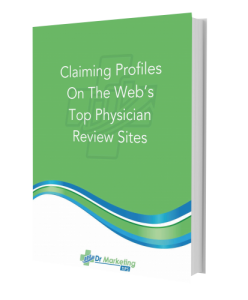Online Reputation Management for Medical Practices: A Comprehensive Guide
- What is online reputation management for doctors?
- What are the benefits of online reputation management?
- Why is it important to have a reputation management policy?
- Checklist for online reputation management for medical practices
- Comprehensive guide to the best medical reputation management platforms
Online reputation management for medical practices is a critical component of your marketing strategy. Popular doctor review sites can make or break a prospective patient’s decision to make an appointment at your practice, or not to.
The stats about today’s healthcare consumerism are clear: 81% of patients now consider online reviews before choosing a doctor, and 75% will only consider a provider with a 4-star rating or higher. This means that people are saying about your practice online through Google Reviews, Healthgrades, RateMDs, Vitals, and Yelp can have a lasting effect. Unfortunately, there is nothing stopping somebody from ‘venting’ anonymously if a doctor on your staff had a bad day. So what can you do about it?
In this comprehensive guide about top review sites, we answer common questions and provide tips for managing your doctor’s online reputation. We’ll talk about how to get positive reviews from patients as well as the top review sites to focus on. By following these tips, you can protect your practice’s online reputation and ensure that potential patients have a positive experience when researching your doctors online.
What Is Online Reputation Management for Doctors?
Online reputation management (ORM) for doctors is the process of monitoring, managing, and responding to online reviews and patient feedback. It’s important to monitor your online reputation because potential patients will often research your medical practice before making an appointment.
In today’s world of consumerism in healthcare, the hard truth to swallow is that 40% of patients will not visit a provider with poor reviews. In fact, according to Press Ganey’s 2021 Consumer Experience Trends in Healthcare report, ratings and reviews are the #1 factor influencing a consumer’s decision to book an appointment at your practice – or their decision not to.
However, this doesn’t have to be a bad thing for your medical practice. With successful ORM, you can proactively manage your online reputation to ensure that patients have a positive experience when researching your practice. This will help you build trust with potential patients and improve your search engine ranking, among other benefits.
What Are the Benefits of Online Reputation Management?
Successful online reputation management for your medical practice should deliver a noticeable difference in how your practice is perceived online and the ability of your practice to attract new patients. Here are some of the benefits you’ll begin to see when your ORM policy is working effectively:
- Attracting New Patients. 47% of prospective patients will search the type of doctor they are looking for, paired with “near me” in order to find a new provider. When you are intentional in managing your online reputation, more people searching your specialty in their area will stumble across your practice and be enticed by the 5-star ratings appearing in their Google search results.
- Improving Quality of Care. One of the more unseen benefits of ORM is that the feedback you receive from patients can help inform practice decisions and help you deliver the care patients are looking for. Not only will care at your physical office improve, but your patients will feel heard and grow in their loyalty when they see that you responded to their review online and answered their questions and concerns.
- Seeing an Increase in Revenue. A recent Northwestern University study has suggested that having at least five quality product reviews can increase the likelihood of purchase by 270%. It makes sense that, ultimately, when you improve your online reviews and attract new patients, you will begin to see returns on your investment.
If you’re reading this guide, you may not be sure where to start approaching your practice’s ORM more intentionally. To be most effective, it may be beneficial to write and then implement a policy for online reputation management at your practice when you’re first getting started so that you can approach the process with the right strategy.
Why Is It Important to Have an Online Reputation Management Policy?
It’s important to have a reputation management policy in place because it will help you proactively manage your online presence. Additionally, a good reputation management policy will help you respond quickly and effectively to negative reviews, helping you build trust with other potential patients and improve your search engine ranking.
What does an ORM policy look like? Here’s what we recommend medical practices do to stay on top of their online reputation.
Checklist for Online Reputation Management for Medical Practices
A reputation management policy should include three key components: monitoring, responding, and preventing.
- Monitoring. You should regularly monitor your online presence for reviews and patient feedback. There are a number of tools you can use to do this, including Google Alerts, Mention, and Hootsuite Insights.
- Responding. You should have a process in place for responding to both positive and negative reviews. For positive reviews, you can simply thank the patient for their feedback. For negative reviews, you should take the time to address the concerns raised and apologize if necessary.
- Preventing. You can prevent negative reviews by proactively managing your online presence and reputation. When a prospective patient realizes that you respond quickly to concerns, you can start building trust with them before they even have the chance to book their appointment.
By following this general structure, you can effectively manage your medical practice’s online reputation. However, there is a crucial part of prevention that we haven’t discussed yet, and that is claiming your business on popular review sites and using them to maximize your search ranking.
Comprehensive Guide to the Best Medical Reputation Management Platforms
Each site, like most things, has positives and negatives. Below is a brief guide to Google My Business (Google Reviews), Healthgrades, RateMDs, Vitals, and Yelp.
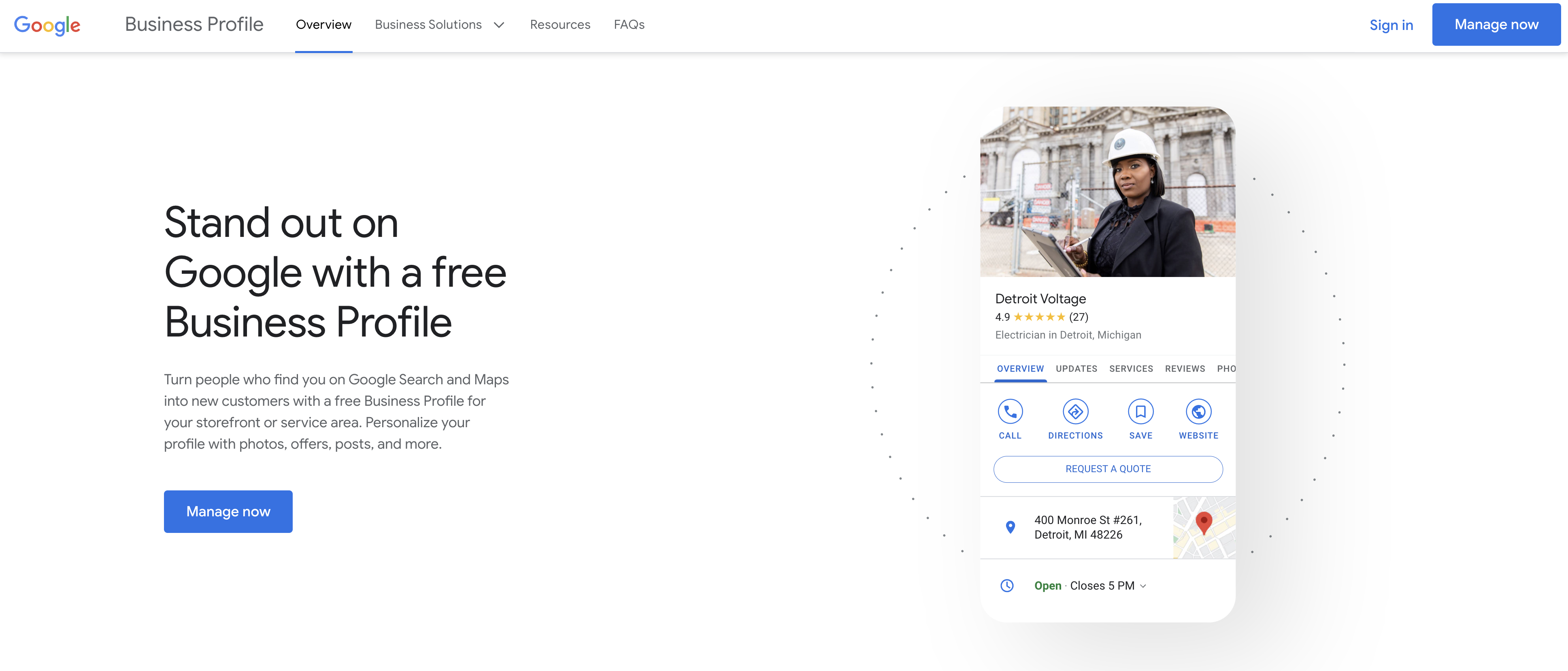
Google My Business and Google Reviews
One of the first steps to optimizing your online reputation management is claiming your Google My Business listing for your practice. As the largest online search engine, Google gives you the best opportunity to build a stronger online presence and showcase what’s best about your practice.
Over 60% of customers for any business will check Google reviews online before they visit, and healthcare customers are no different. What Google reviews provide is social proof and reassurance that your practice can offer what they are looking for.
Customer reviews left on Google show up under your Google My Business listing as well, allowing you to respond easily and efficiently to your patients’ feedback in a public arena. Keep in mind that because of the influence that Google yields, it’s incredibly vital that the information in your listing is completely filled out and stays up to date.
It’s important to regularly review your Google My Business listing to check for inaccuracies and to be certain the information on the listing matches your practice’s website and social platforms.
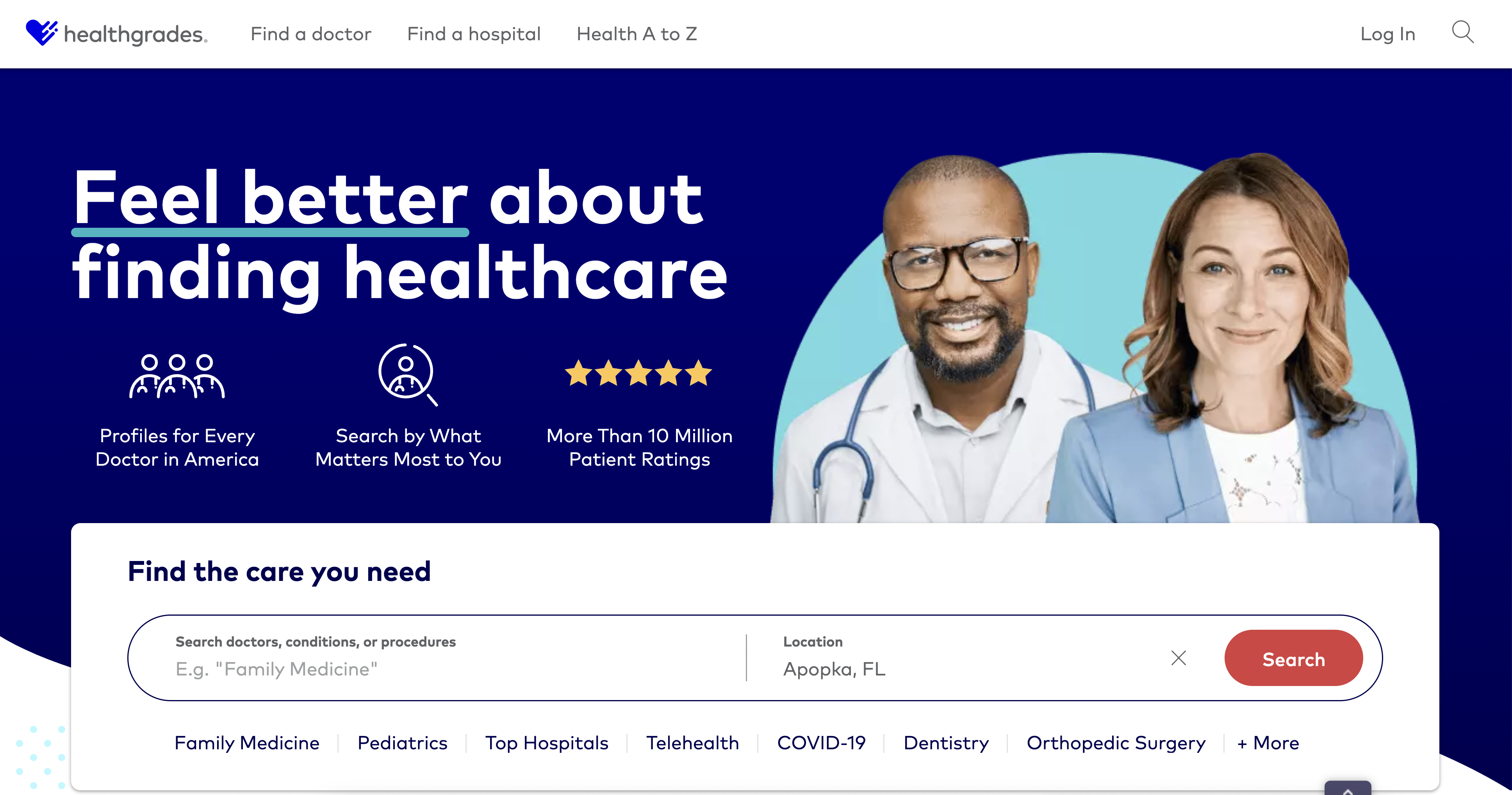
Healthgrades
Healthgrades is an online database of doctors, dentists, and hospitals that has over 100 million users and has amassed data on more than three million U.S. healthcare providers. When a patient searches Google for your practice, Healthgrades will likely show up on the first page.
On Healthgrades, potential patients can search by doctor name, office name, specialty, condition or procedure. While Healthgrades creates physicians’ profiles based on information from government and commercially available services, physicians can claim and edit these profiles.
Once a profile is claimed, you will have the ability to add photos, age, gender, information about specialties, a physician’s background such as when they graduated and information on scheduling appointments. You can claim your practice’s profile, but the main focus is on individuals. The main downside of Healthgrades is that, although physicians can post a general response to patient surveys completed, they cannot reply individually to lowly-graded surveys.
However, Healthgrades is very user-friendly for patients. It doesn’t ask patients to answer questions. Instead, they simply complete a survey. If you have a large number of physicians in your office, you can contact the support center and submit a spreadsheet with your physicians’ information. The support center will then work to update all of the data for you without a fee. Healthgrades will also send physicians personalized, printed postcards with a URL to their profile that can be given to patients.
Additionally, patients can complete patient satisfaction surveys about a practice or physician. The surveys evaluate the office and staff, wait time, experience with the doctor and likelihood of recommending the doctor to family and friends.
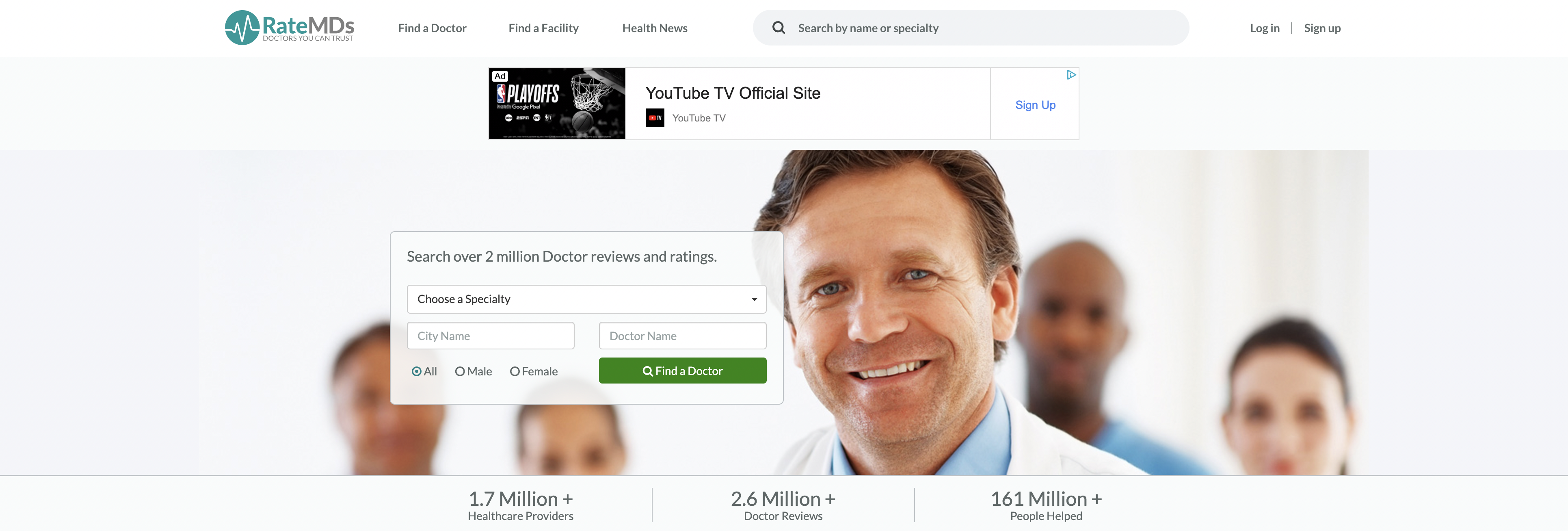
RateMDs
Initially launched in 2004, RateMDs includes over one million doctor profiles and has over two million posted reviews. It was one of the first rating sites for physicians but has recently undergone a major redesign, upgrading the look and feature-set to fall more in line with Vitals and Healthgrades. According to the website, more than 100 million potential patients use RateMDs for information before making important health care decisions.
To claim a profile on RateMDs, you will need the physician’s driver’s license no or a billing statement (and this, in our experience, can be a major pain).
RateMDs allows patients to rate physicians as well as their staff, punctuality, helpfulness, and knowledge. They are also able to leave personal comments about their experience, and they can do this anonymously.
When patients search for a physician by area, they will be provided with the 200 top-ranked physicians in that region. In order to get closer to the top, physicians need more reviews that have higher rankings.
One of the benefits of working with RateMDs is that, if you can prove a fraudulent review was posted, RateMDs will take the review down. RateMDs also adds awards to your physician’s profile when they repeatedly receive good reviews.
However, you won’t have the option to merely remove reviews yourself. If you need to do so, you must contact their support team.
Additionally, doctors can choose to pay a monthly fee which gives them the ability to hide up to three comments, place banner advertisements on the profiles of other doctors and receive electronic appointment requests from patients. But, on the other hand, if physicians don’t choose to pay a monthly fee, they will probably have the advertising banners of other doctors shown prominently on their profiles.

Vitals
Similar to Healthgrades and RateMDs, Vitals is an online database of medical professionals where patients can search for healthcare options based on specialty, doctor, or condition. Filters can be applied for accepted insurance and location.
Vitals will likely show up on the first page of a Google search, which is beneficial if you have high ratings, but can be a detriment if your reviews are poor. Physicians can measure the performance of their providers and receive analytics about their profile. They can also be notified when they’ve been rated.
Vitals also has advertising on its site. Large hospital groups purchase these advertising spots, and they will show up next to your reviews. These ads may confuse patients and lure them away from your practice listings.
It is free for physicians to claim their profile on Vitals, but Vitals offers “enhanced” options for profiles when a fee is paid. Reviews are compiled with information such as wait time, staff, bedside manner, and promptness. Patients can leave personalized messages about their experience, and they can also leave reviews anonymously.
It’s worth noting that Vitals doesn’t allow reviews that aren’t constructive.
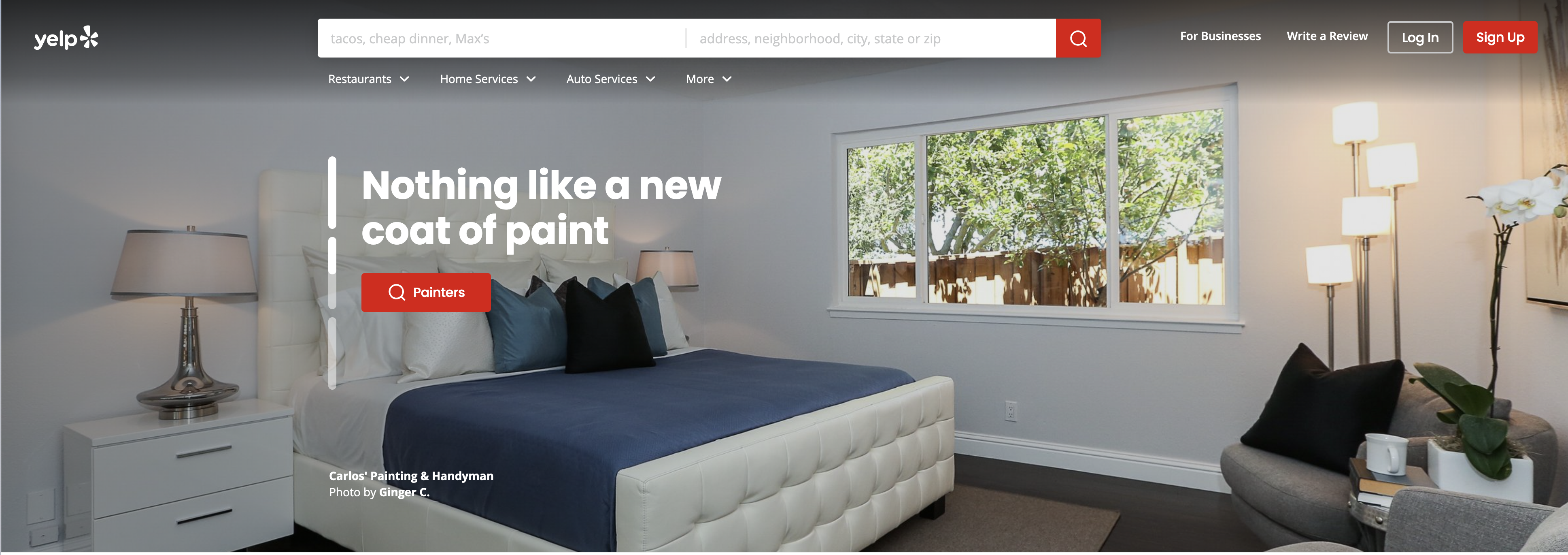
Yelp
Yelp is the most trusted of online review sites and the fastest growing. It also ranks highly on a Google search. On Yelp, users create reviews for almost anything including restaurants, retail stores, and doctors. Businesses can respond publicly and privately to these reviews.
Patients rate their experience out of five stars and can write a personal review that can be shared with friends or random people. Physicians can respond to these reviews either publicly or privately once a profile is claimed.
Fortunately, any reviews that Yelp believes to be untrustworthy are filtered and, although still accessible, don’t affect your rankings.
Healthcare providers can set up their own profiles on Yelp, allowing them to add photos and respond to users’ reviews. It is important to post accurate information such as the address, phone number, and business hours. Once a profile is created, physicians can access metrics about their profile including user views, user actions, and Yelp ad clicks.
The one major downside of Yelp is that, if your profile is fraudulently claimed, Yelp wants money to straighten the problem out. It is notoriously also the most challenging site to claim a profile on because it requires a telephone call, an access code, and a fast turnaround.
Additionally, Yelp limits the number of claims you can make per day unless you pay Yelp to help you. Negative reviews cannot be removed unless a formal request is made to their support staff (results may vary). Reviews show up based on a complicated algorithm. This means that a review left by a first-time user, even if it’s positive, may not show up, and sometimes reviews disappear if they are not considered an avid Yelp user.
Discover More About Online Reputation Management for Medical Practices
By following these tips, you can effectively manage your medical practice’s online reputation. Doing so will help you attract new patients, build trust with potential patients, and improve the quality of care at your practice. Additionally, a well-crafted reputation management policy can help you prevent negative reviews and improve your search engine ranking.
If you’re ready to take the plunge into online reputation management, claim your accounts, and respond to reviews diplomatically and strategically, but aren’t sure where or how to start, we can help. Speak to an ORM strategist on our medical online marketing team today.
